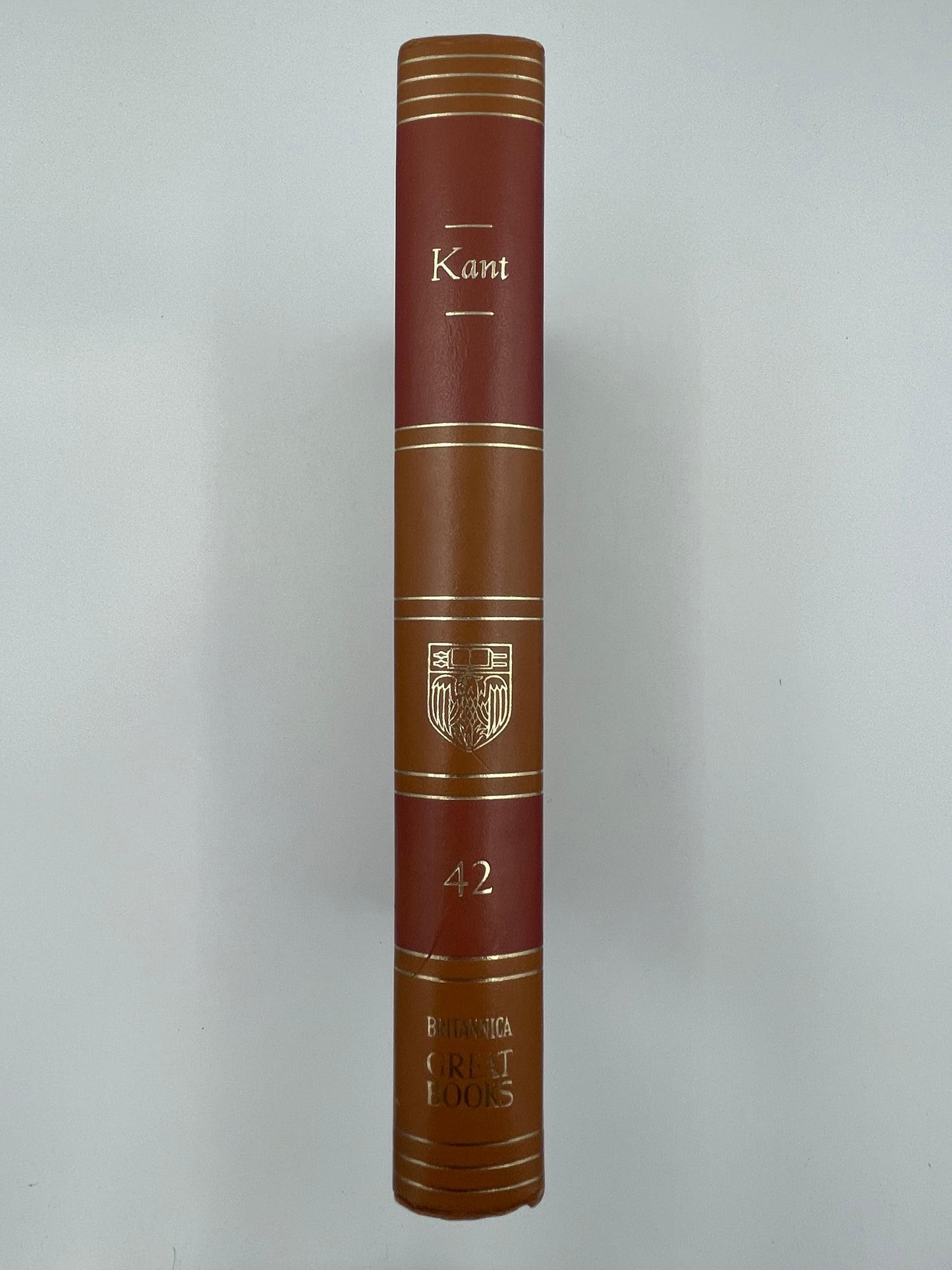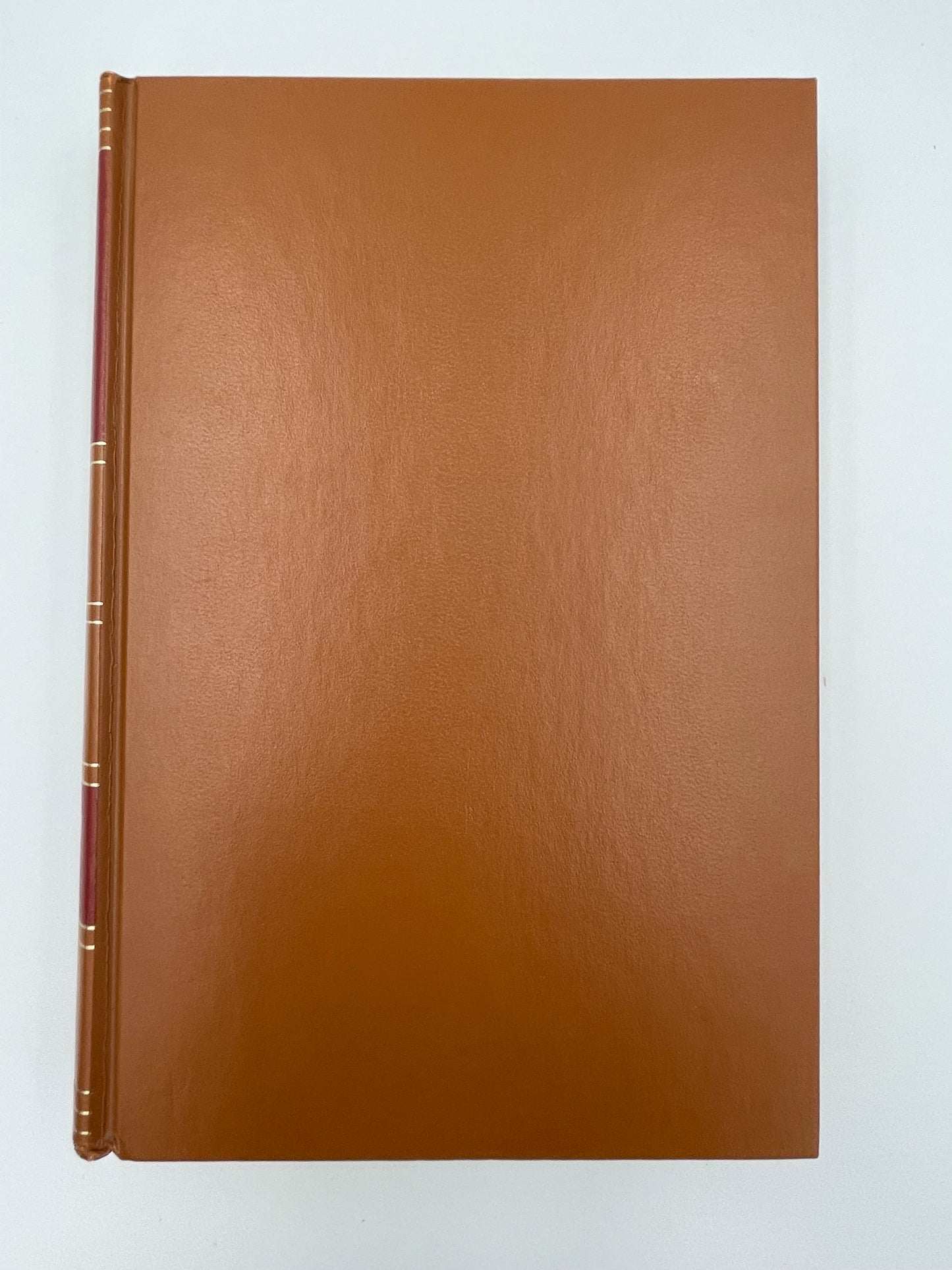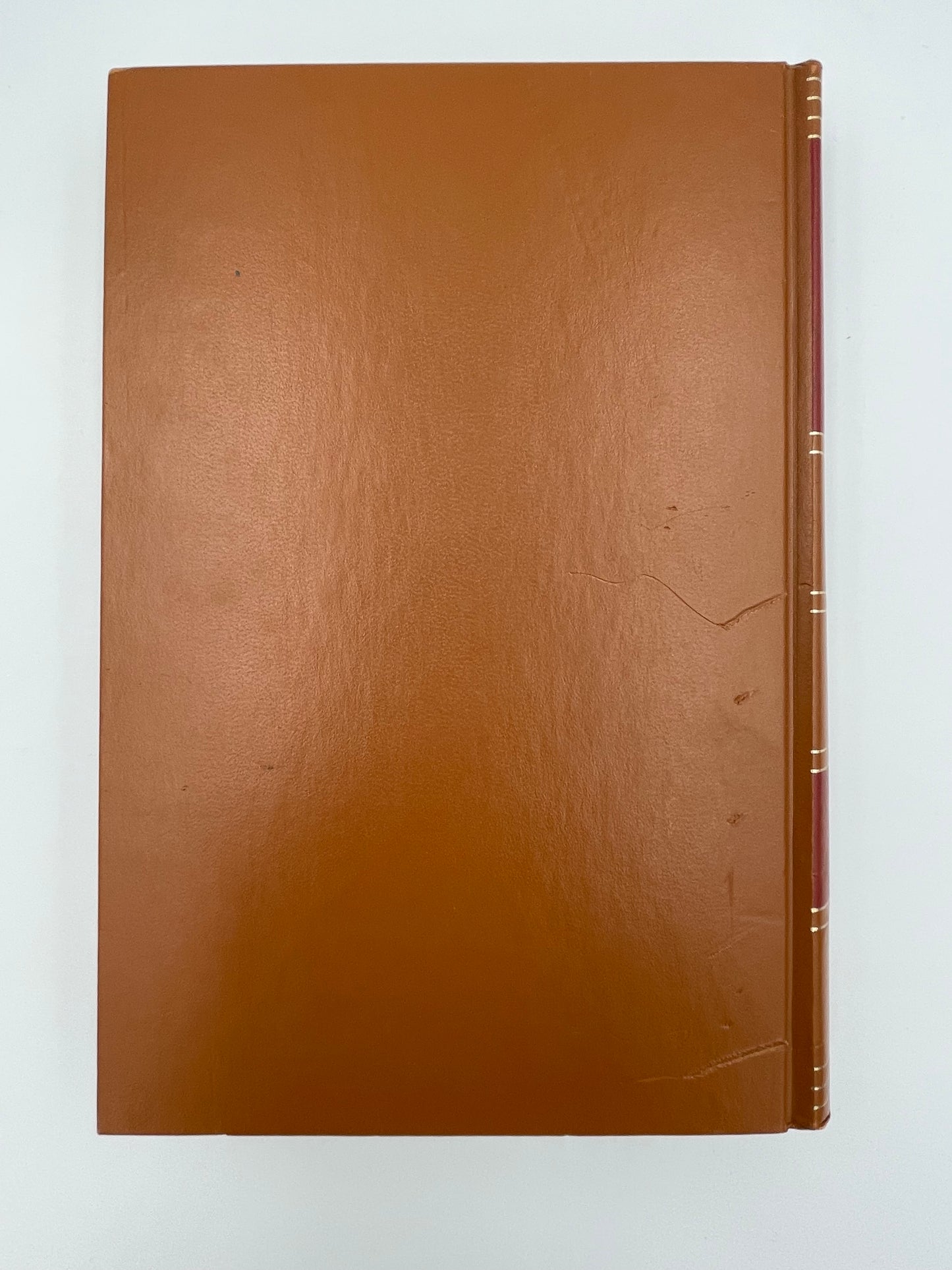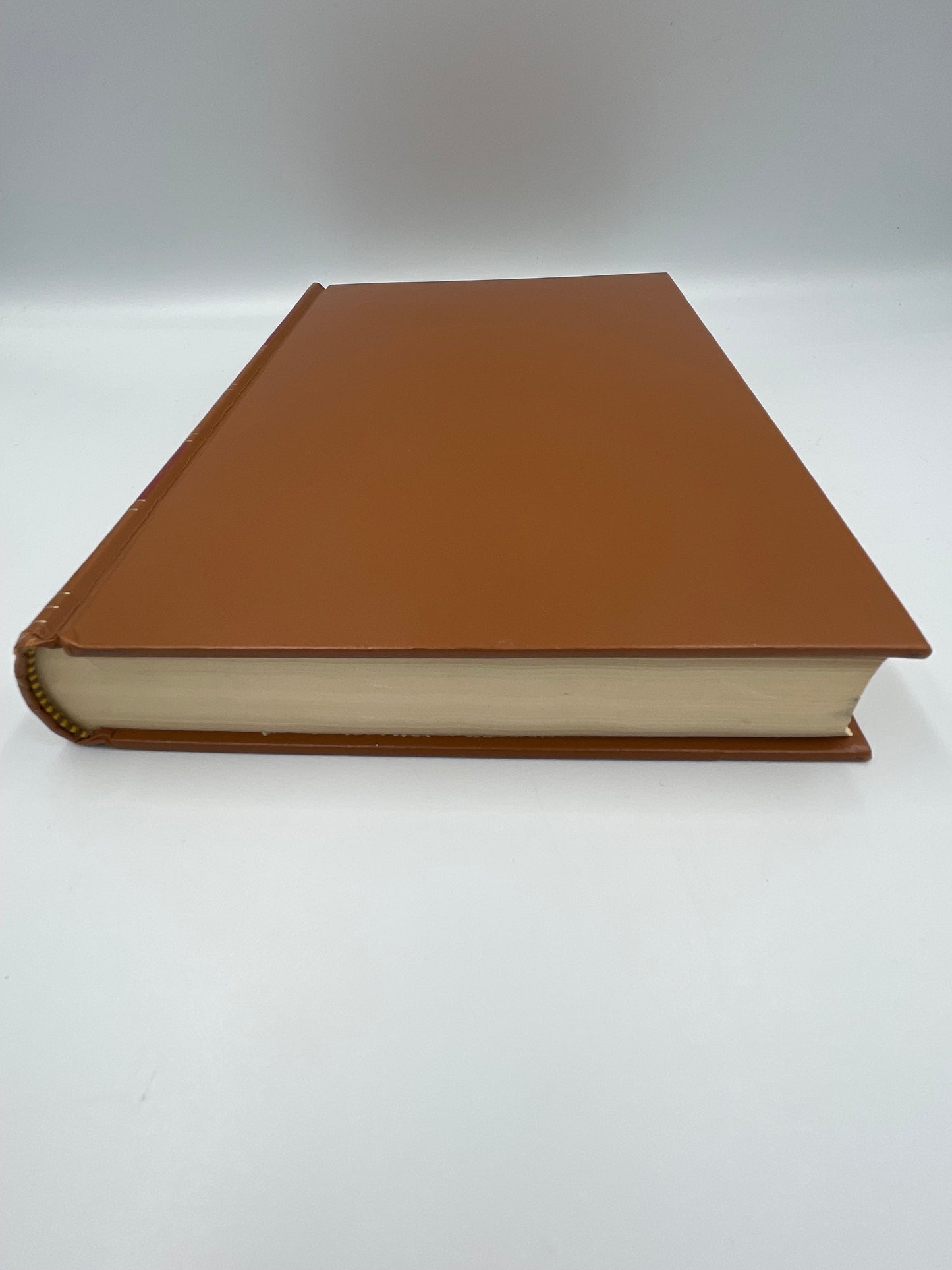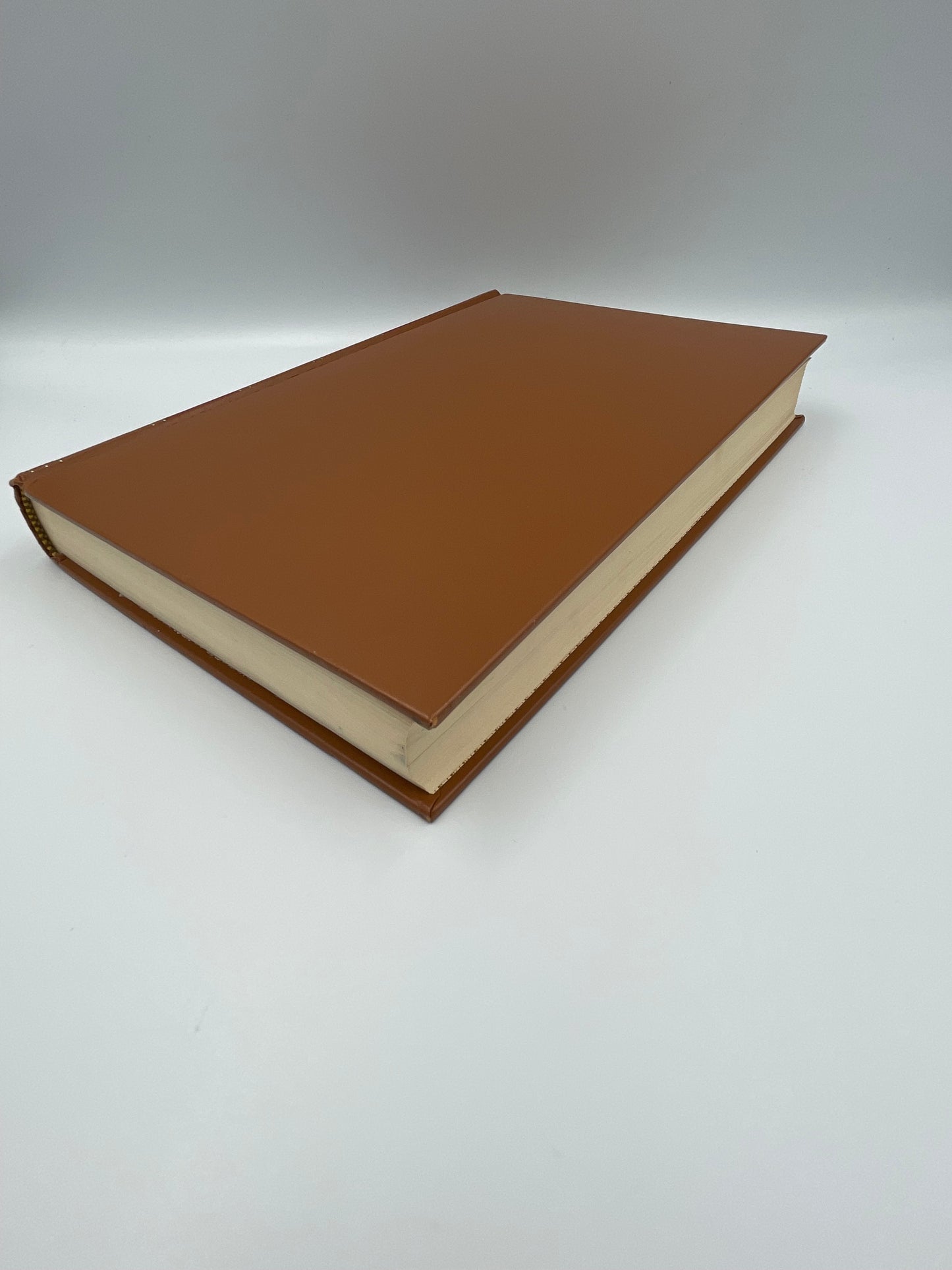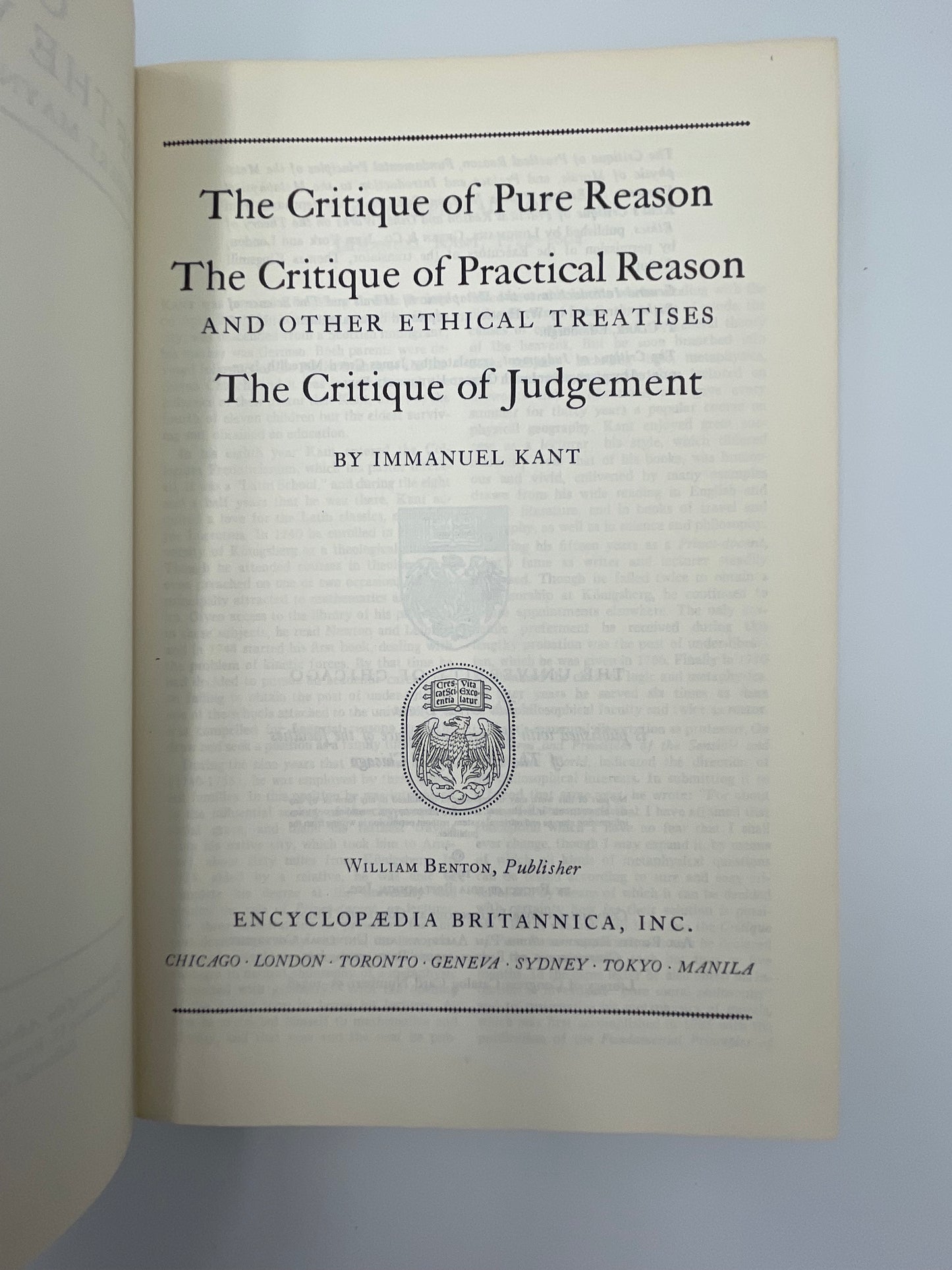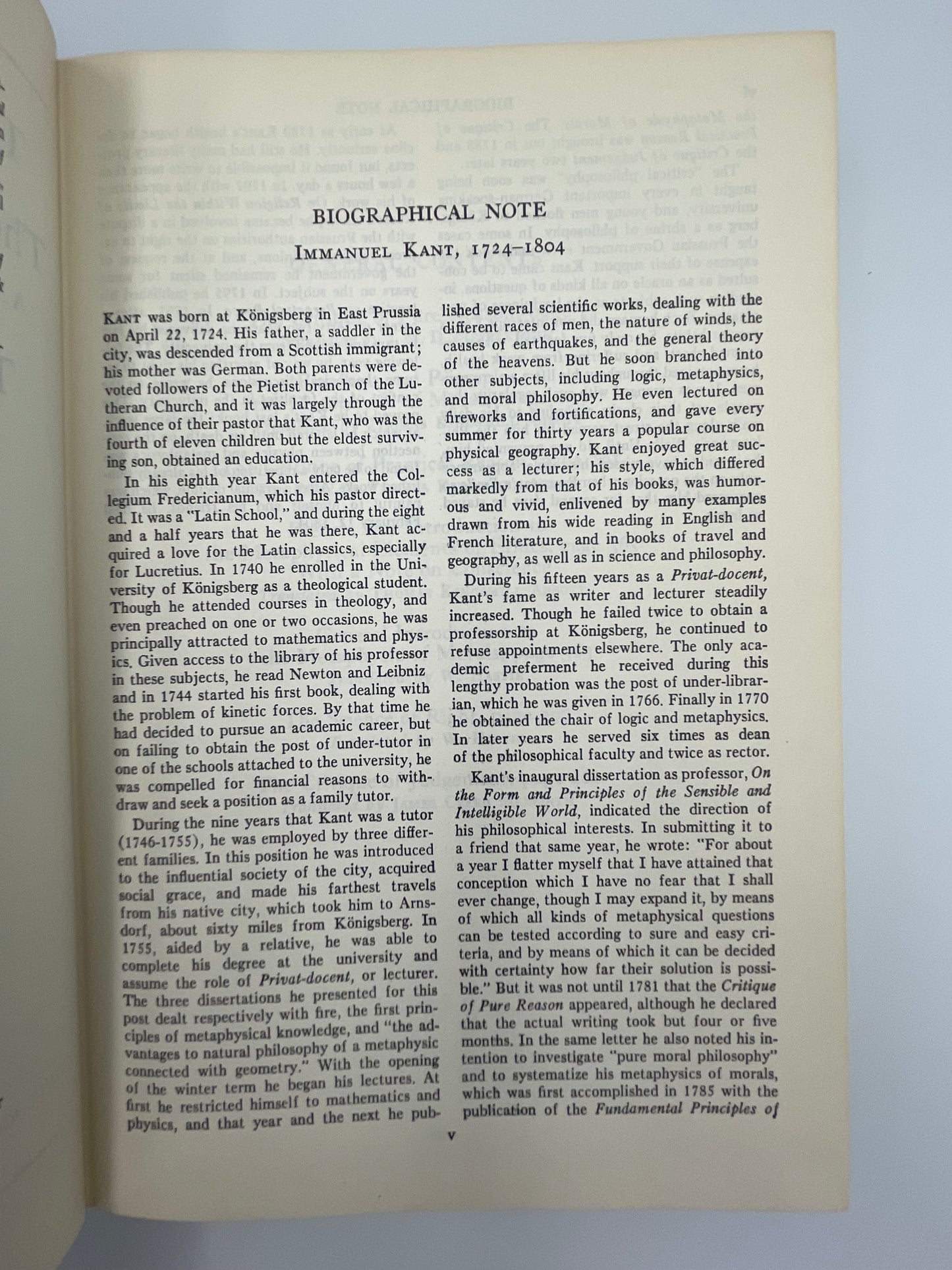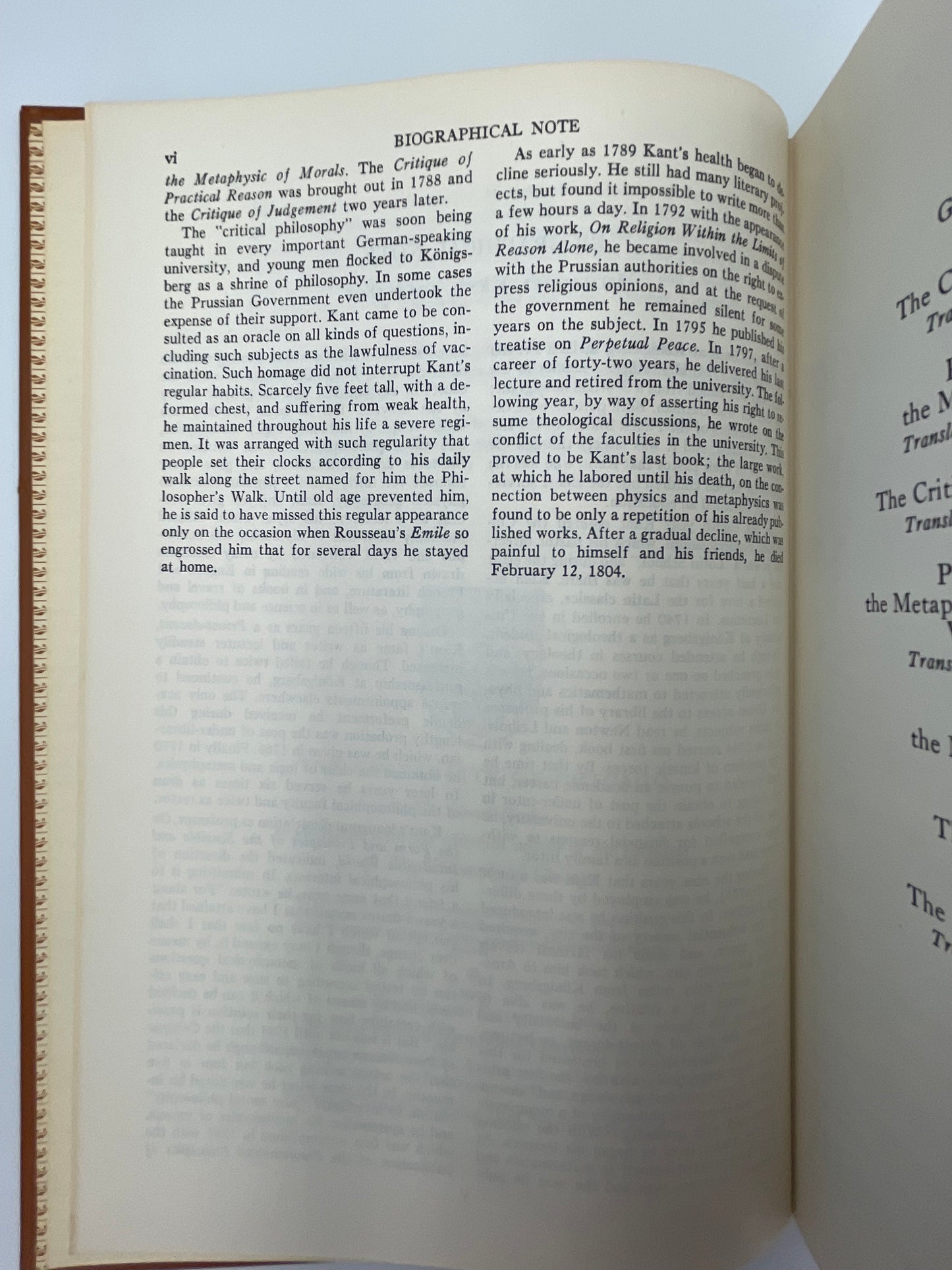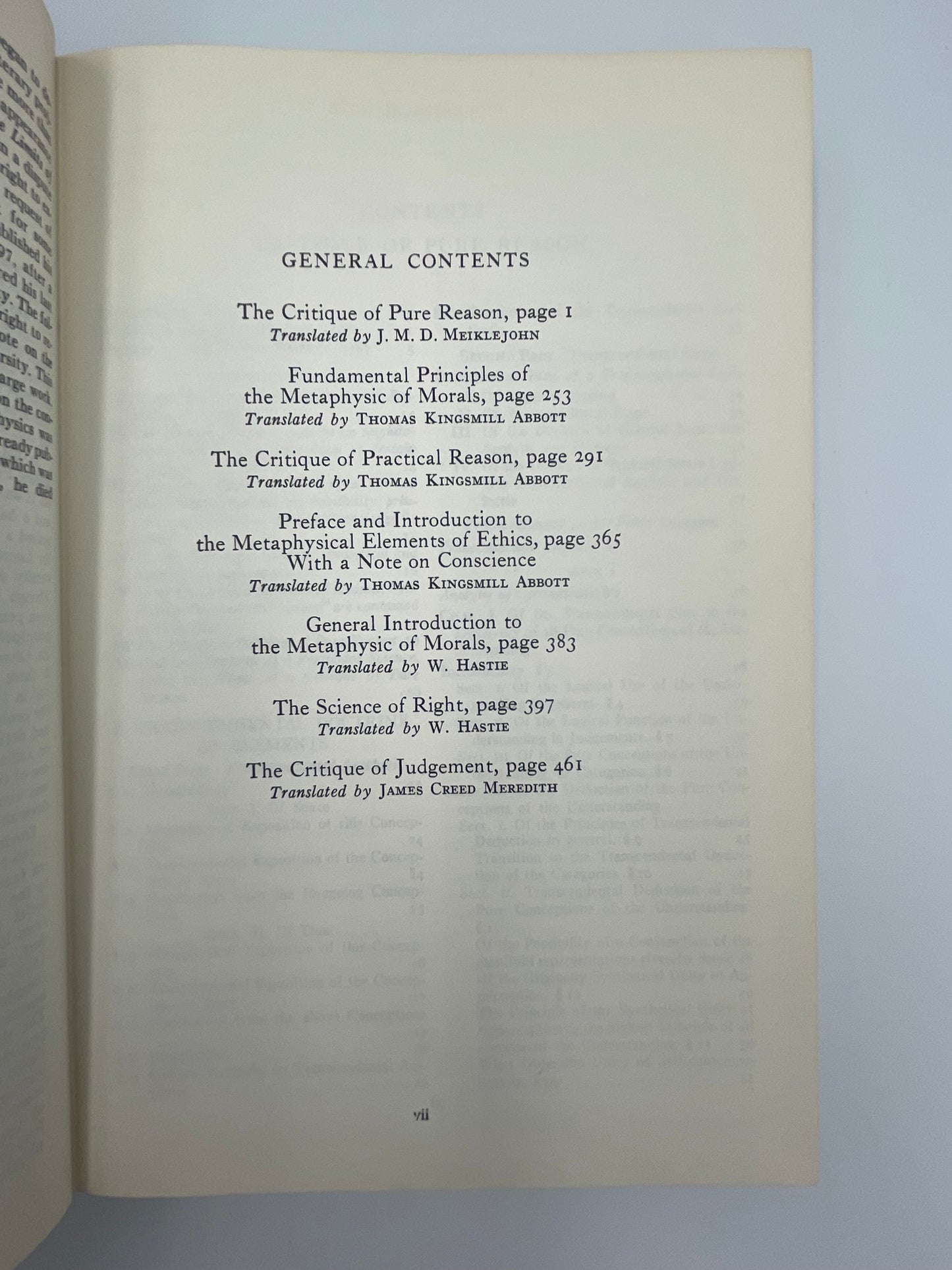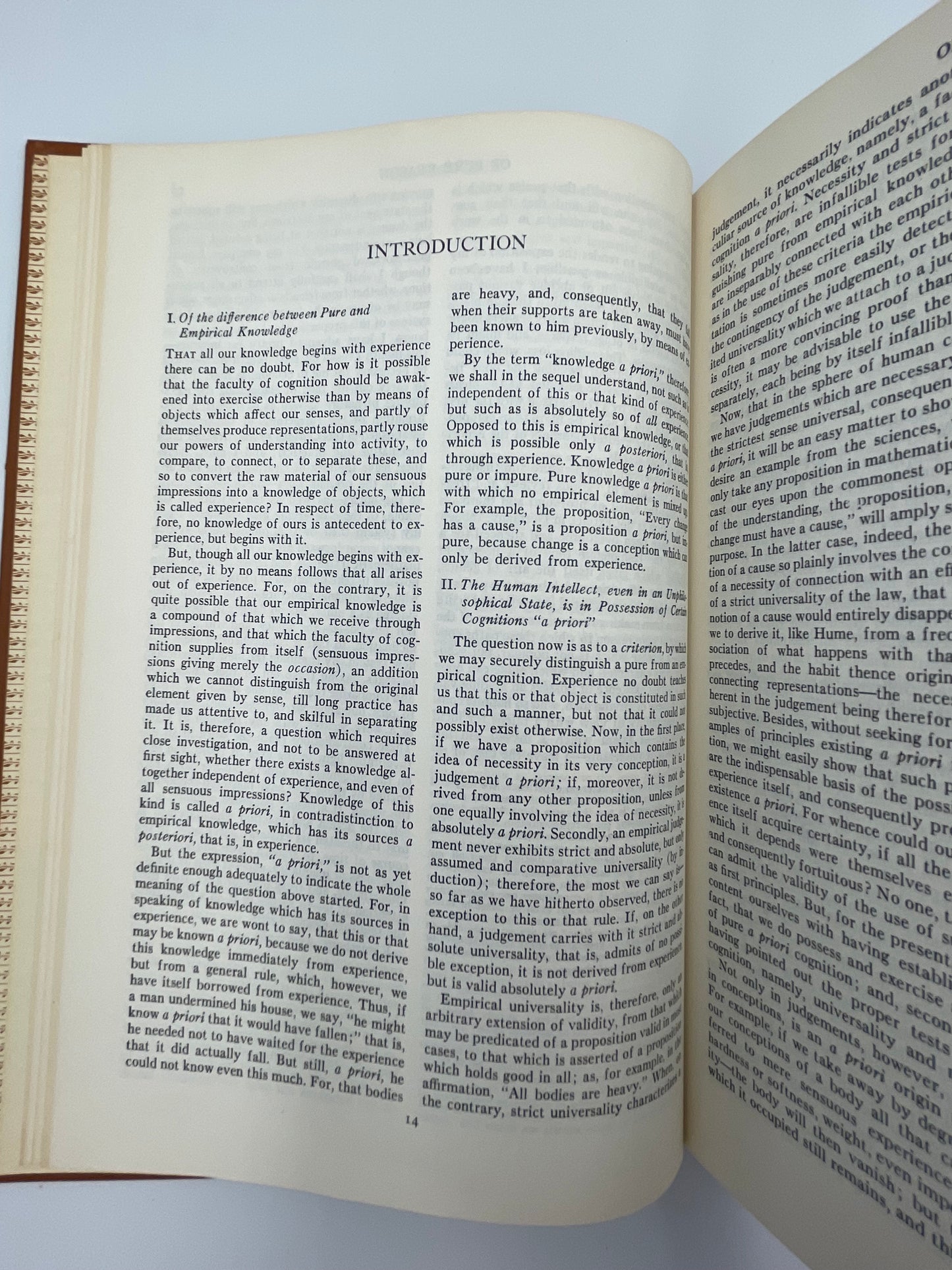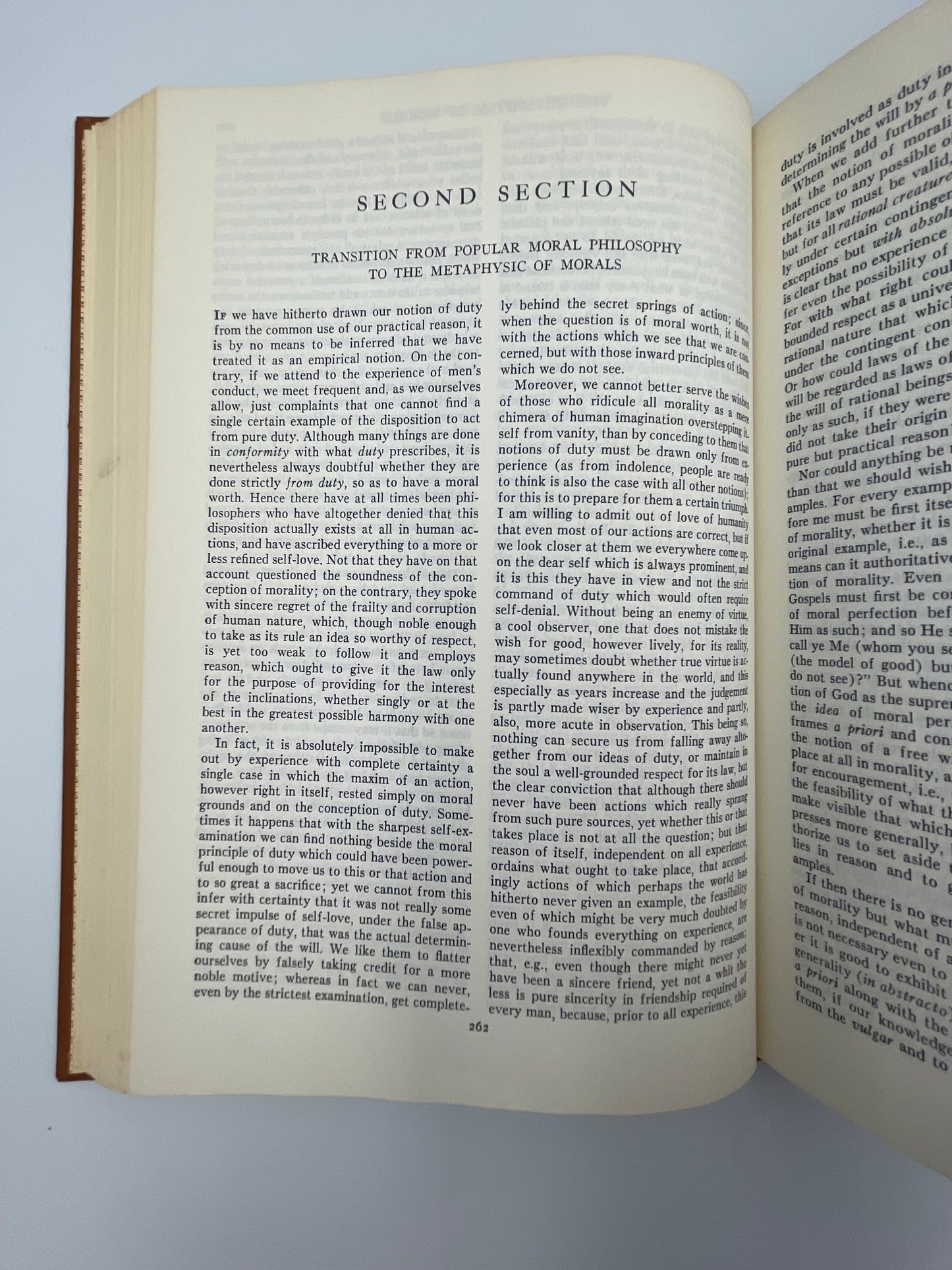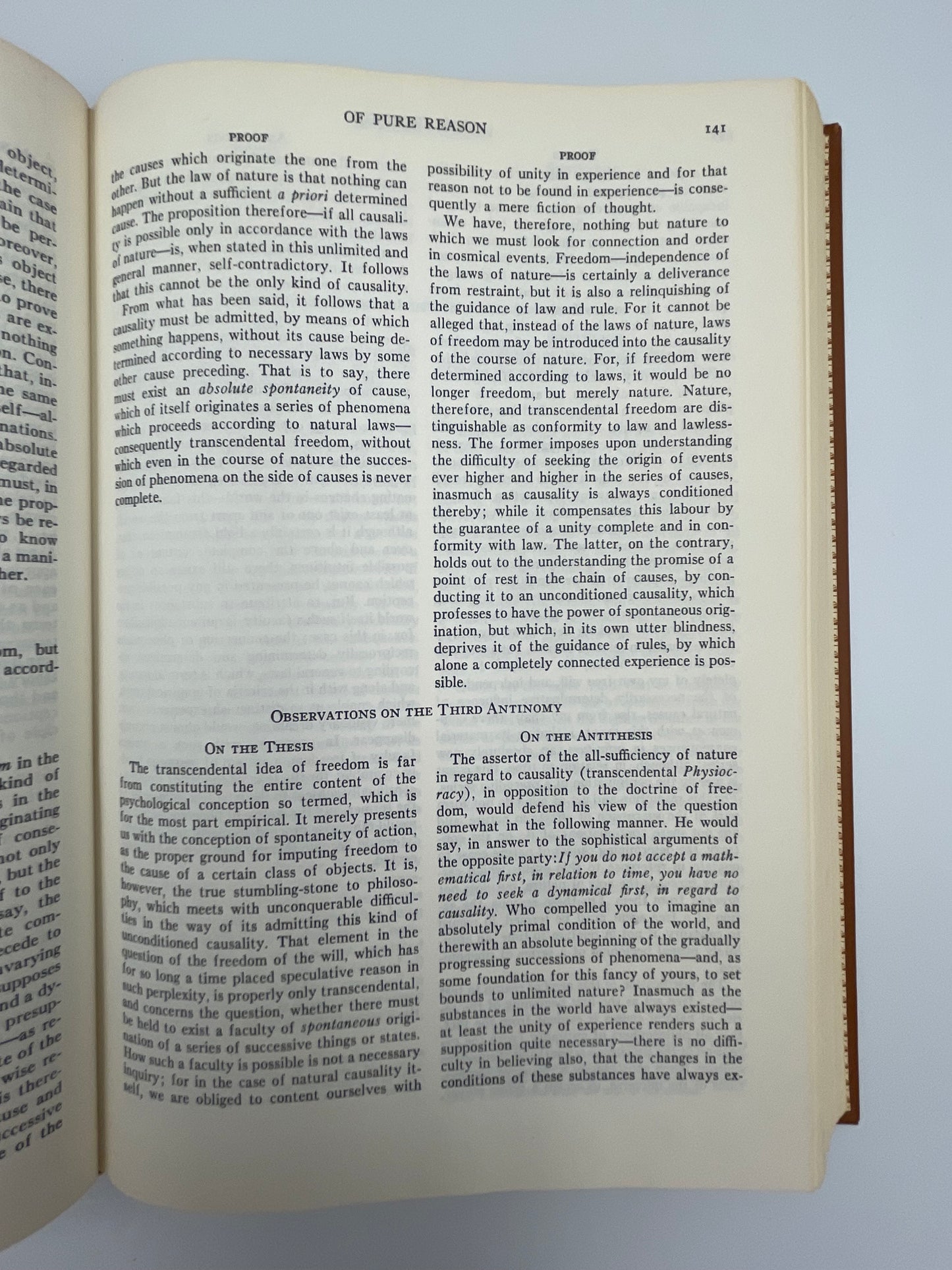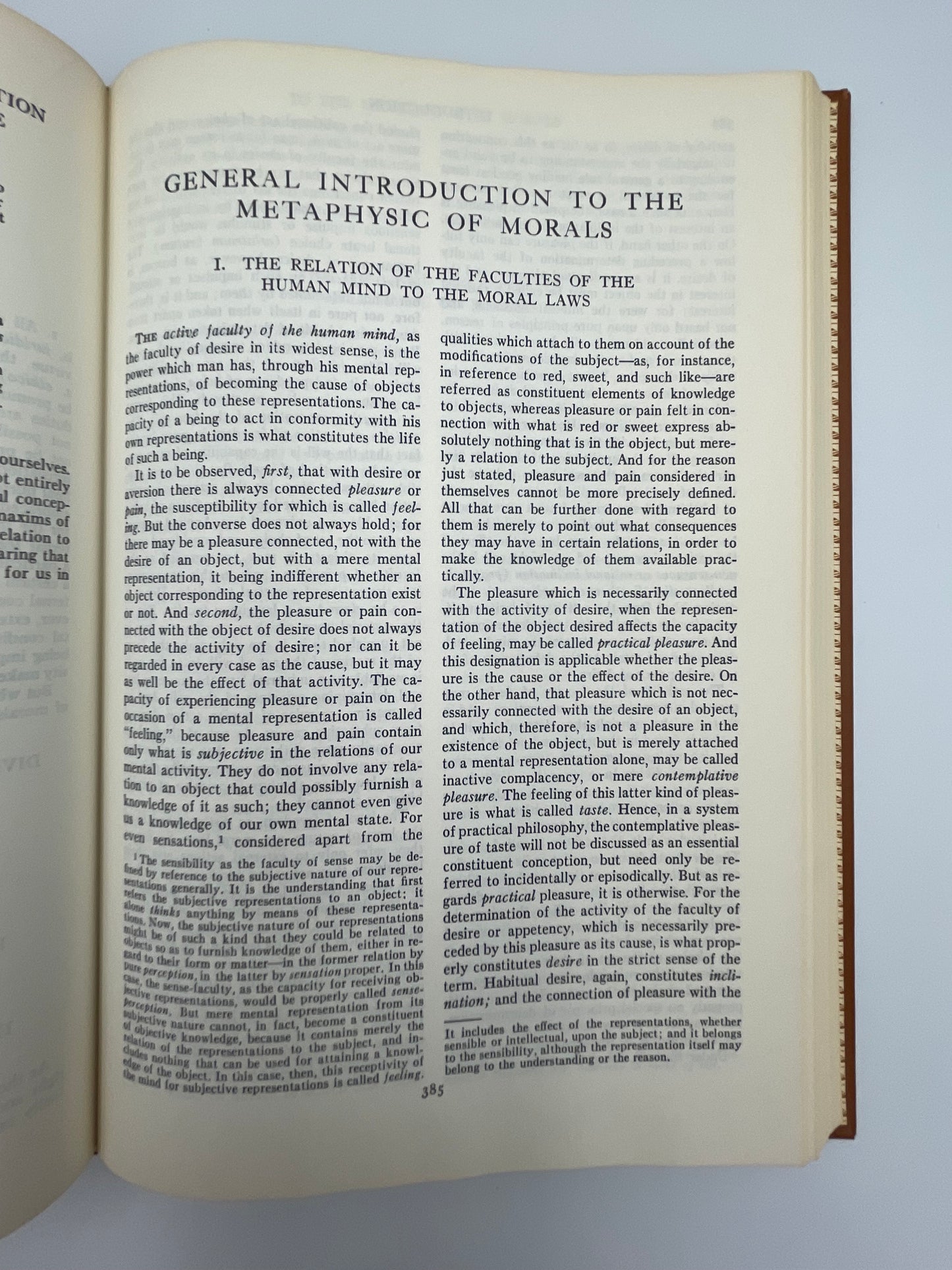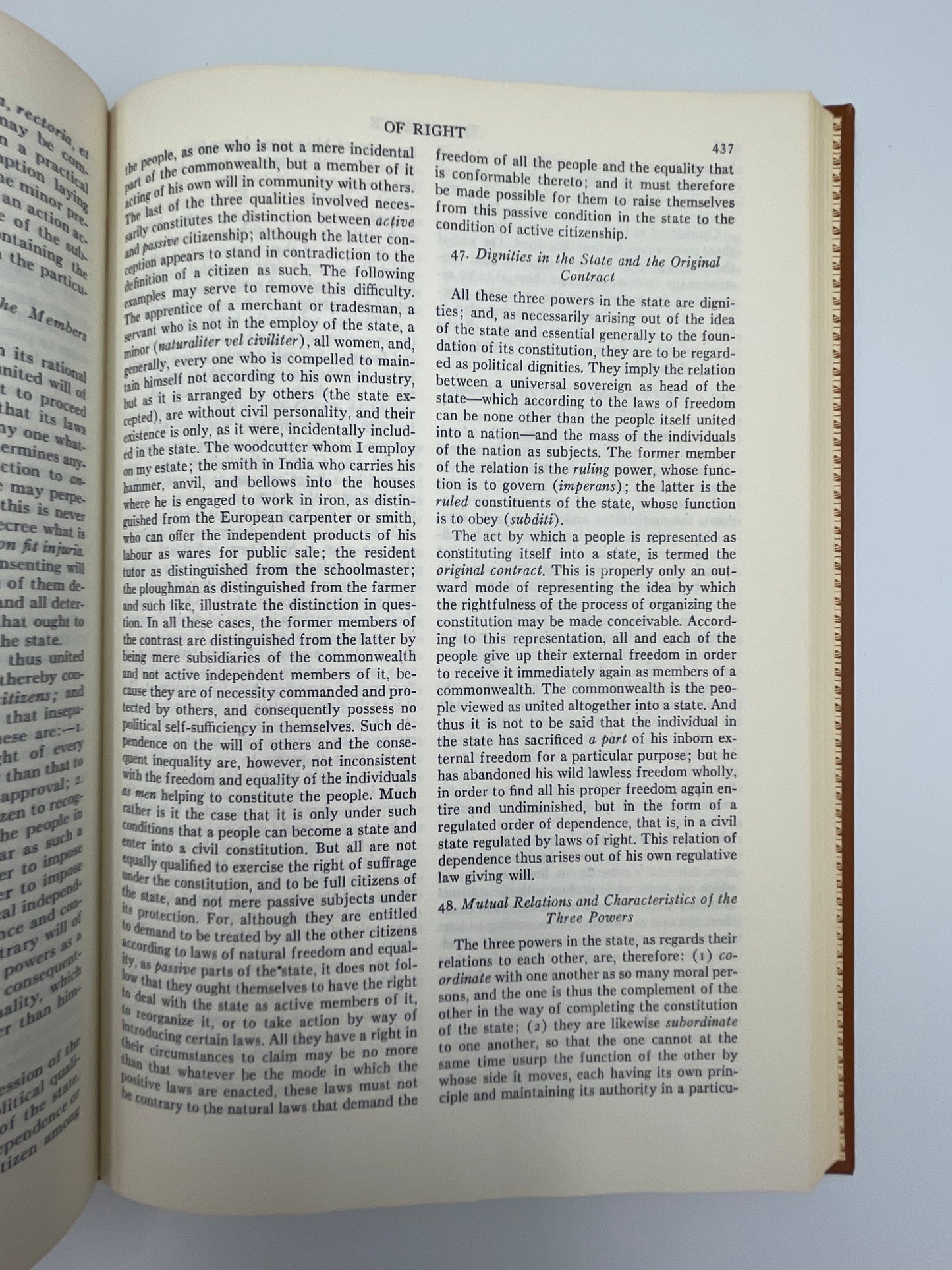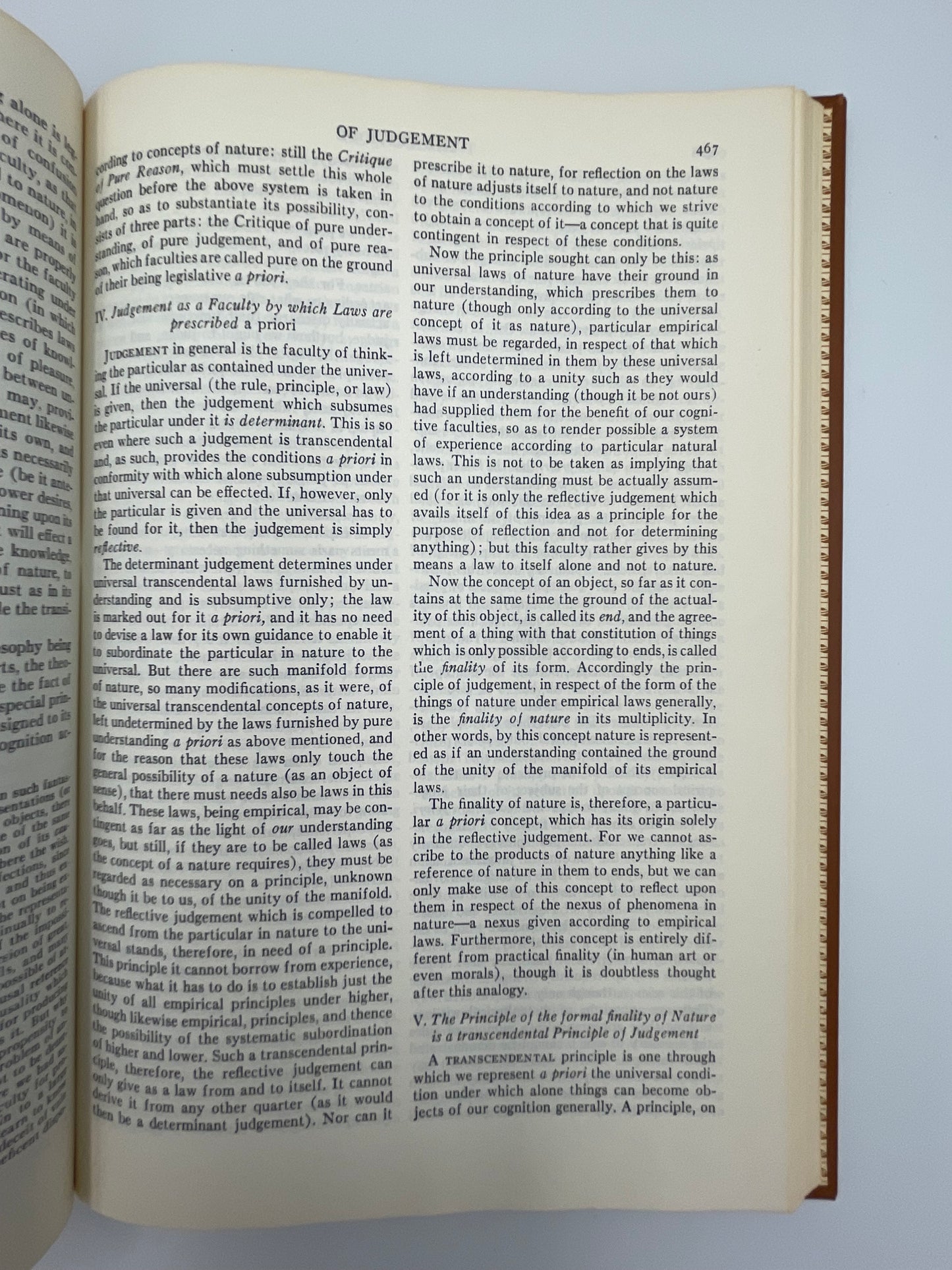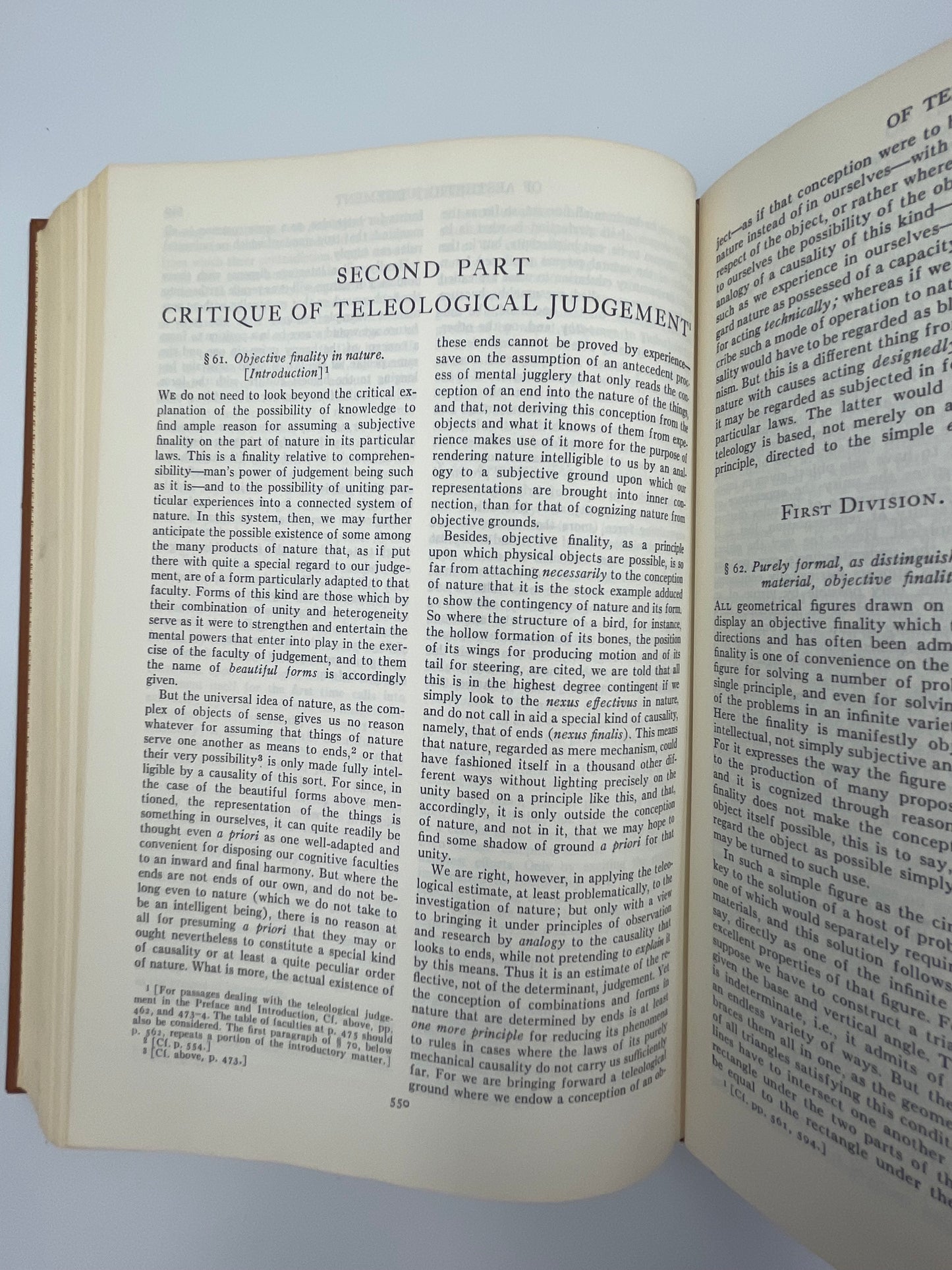Encyclopaedia Britannica
Kant (Britannica Great Books of the Western World): The Critique of Pure Reason; The Critique of Practical Reason and Other Ethical Treatises; The Critique of Judgement
Kant (Britannica Great Books of the Western World): The Critique of Pure Reason; The Critique of Practical Reason and Other Ethical Treatises; The Critique of Judgement
Couldn't load pickup availability
Author: Immanuel Kant
Title: The Critique of Pure Reason. The Critique of Practical Reason And Other Ethical Treatises. The Critique of Judgement. (Britannica: Great Books of the Western World)
Publisher: Encyclopaedia Britannica
Year: 1952
Format: Hardcover
Condition: Good
Weight: 849 g
Dimensions: 17 x 24 x 3 cm
Back cover (image 3) has some scratches thus reduced price. No markings on pages.
Full brown leatherette (1952), gilt spine, Smyth-sewn. Part of the Great Books of the Western World series by Encyclopaedia Britannica, edited with guidance from the University of Chicago.
Immanuel Kant's critiques form a comprehensive system that addresses how we come to know, how we should act, and how we interpret beauty and purpose. These works are foundational to modern philosophy and cover distinct but interconnected areas.
The Critique of Pure Reason (1781) - This work addresses the nature and limits of human knowledge. Kant explores how we perceive and understand the world, arguing that our experience is shaped by both sensory input and the mind's inherent structures. It introduces his theory of "transcendental idealism," which distinguishes between what we can know (phenomena) and what lies beyond our experience (noumena).
The Critique of Practical Reason and Other Ethical Treatises (1788) - In this collection, Kant examines the principles of morality and ethical behavior. He develops his theory of "deontological ethics," asserting that moral actions are determined by duty and adherence to universal moral laws, rather than by consequences. This work is crucial for understanding Kant's ethical framework and his concept of the categorical imperative.
The Critique of Judgment (1790) - This book deals with aesthetics and teleology, exploring how we judge beauty and purpose in the world. Kant examines the nature of aesthetic experience and how it connects to human understanding, as well as how we perceive purpose in nature. This work bridges his theories of knowledge and morality, influencing both philosophy and the arts.
Share
